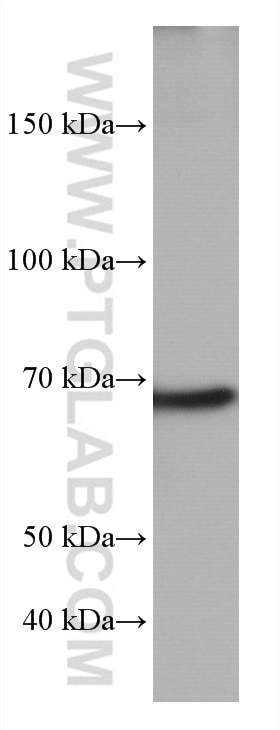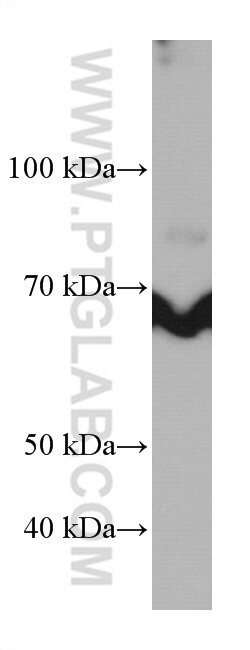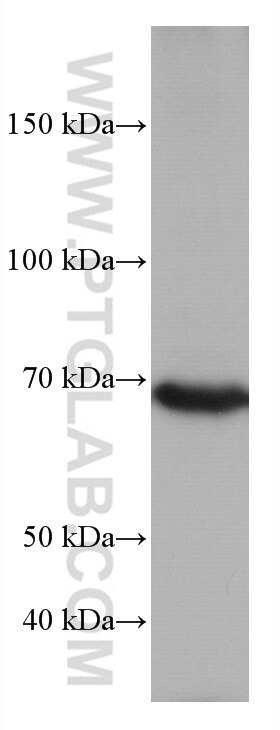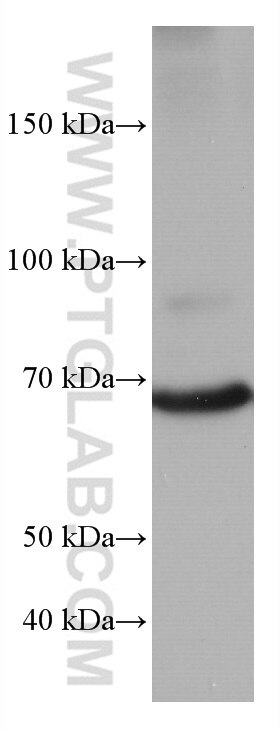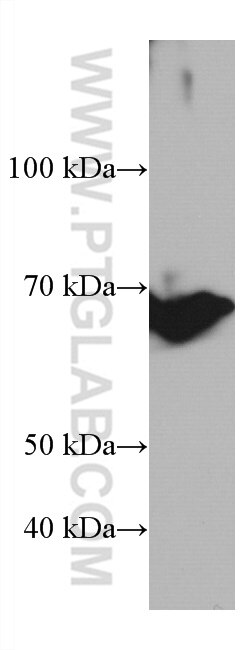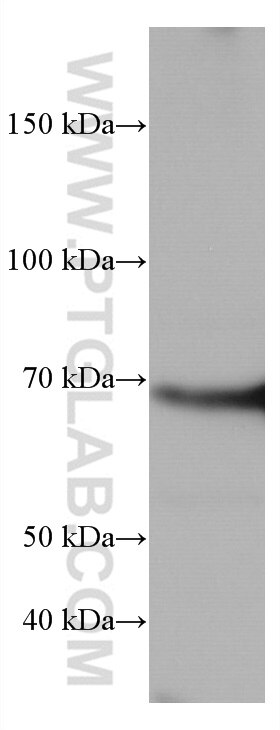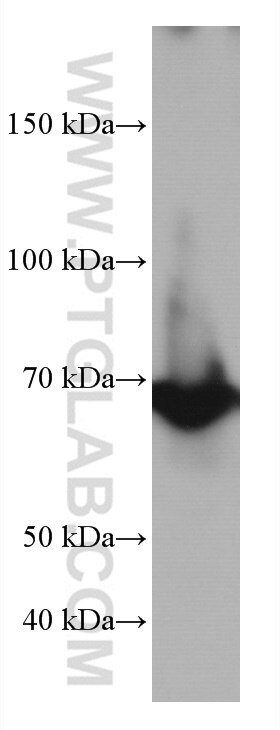TP73 Monoklonaler Antikörper
TP73 Monoklonal Antikörper für WB,ELISA
Wirt / Isotyp
Maus / IgG1
Getestete Reaktivität
human, Maus, Ratte
Anwendung
WB, RIP, ELISA
Konjugation
Unkonjugiert
CloneNo.
1D12A12
Kat-Nr. : 66990-1-Ig
Synonyme
Galerie der Validierungsdaten
Geprüfte Anwendungen
| Erfolgreiche Detektion in WB | MCF-7-Zellen, HEK-293-Zellen, HeLa-Zellen, Jurkat-Zellen, NIH/3T3-Zellen, RAW 264.7-Zellen |
Empfohlene Verdünnung
| Anwendung | Verdünnung |
|---|---|
| Western Blot (WB) | WB : 1:5000-1:20000 |
| It is recommended that this reagent should be titrated in each testing system to obtain optimal results. | |
| Sample-dependent, check data in validation data gallery | |
Veröffentlichte Anwendungen
| WB | See 2 publications below |
| RIP | See 1 publications below |
Produktinformation
66990-1-Ig bindet in WB, RIP, ELISA TP73 und zeigt Reaktivität mit human, Maus, Ratten
| Getestete Reaktivität | human, Maus, Ratte |
| In Publikationen genannte Reaktivität | human |
| Wirt / Isotyp | Maus / IgG1 |
| Klonalität | Monoklonal |
| Typ | Antikörper |
| Immunogen | TP73 fusion protein Ag26793 |
| Vollständiger Name | tumor protein p73 |
| Berechnetes Molekulargewicht | 70 kDa |
| Beobachtetes Molekulargewicht | 70 kDa |
| GenBank-Zugangsnummer | NM_001126240 |
| Gene symbol | TP73 |
| Gene ID (NCBI) | 7161 |
| Konjugation | Unkonjugiert |
| Form | Liquid |
| Reinigungsmethode | Protein-G-Reinigung |
| Lagerungspuffer | PBS mit 0.02% Natriumazid und 50% Glycerin pH 7.3. |
| Lagerungsbedingungen | Bei -20°C lagern. Nach dem Versand ein Jahr lang stabil Aliquotieren ist bei -20oC Lagerung nicht notwendig. 20ul Größen enthalten 0,1% BSA. |
Protokolle
| Produktspezifische Protokolle | |
|---|---|
| WB protocol for TP73 antibody 66990-1-Ig | Protokoll herunterladen |
| Standard-Protokolle | |
|---|---|
| Klicken Sie hier, um unsere Standardprotokolle anzuzeigen |
Publikationen
| Species | Application | Title |
|---|---|---|
Cell Rep A p53/LINC00324 positive feedback loop suppresses tumor growth by counteracting SET-mediated transcriptional repression | ||
Biochem Pharmacol Palmatine induces G2/M phase arrest and mitochondrial-associated pathway apoptosis in colon cancer cells by targeting AURKA. | ||
Carcinogenesis Construction and identification of lncRNA/circRNA coregulated ceRNA networks in gemcitabine-resistant bladder carcinoma |
